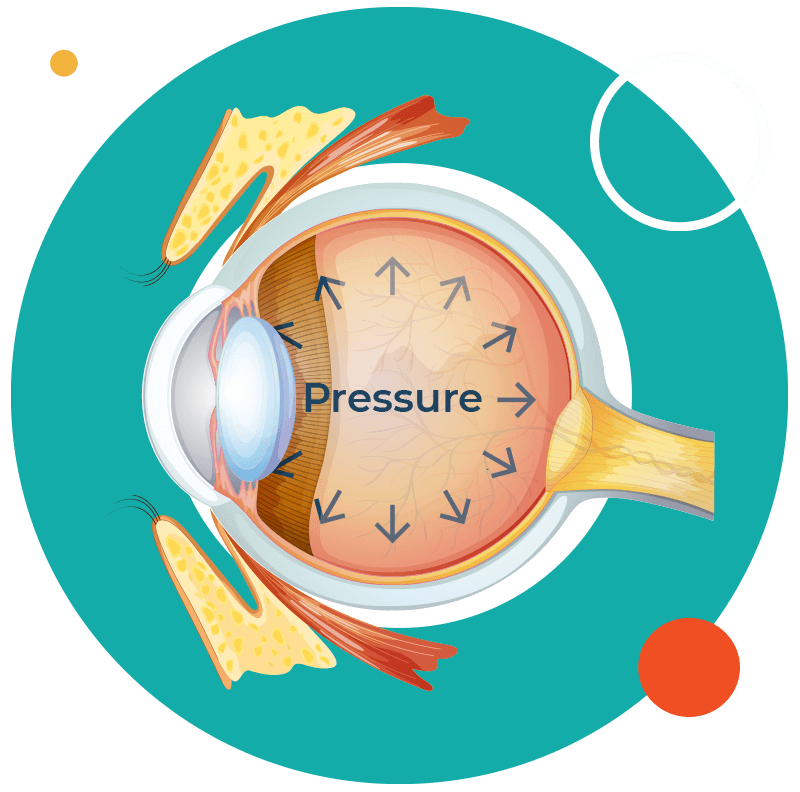

The symptoms greatly depend on the type of glaucoma and the stage of the disease. Two main types of glaucoma are open angle glaucoma and closed angle glaucoma. The latter has a specific form of the disease known as acute closed angle glaucoma which is considered to be an eye emergency. If you are experiencing any symptoms of the acute form, please book an immediate appointment with your eye doctor. If there isn’t a time slot available right away, please don’t delay and go to the nearest emergency room.
Open Angle Glaucoma
The main symptom is changes in your visual field. Some people may notice patches of blind spots in the central or peripheral vision which occurs in both eyes. If the damage to the visual field advances, it can cause tunnel vision which means that the person can only see in the narrow center of the visual field, but not the periphery.
Acute Closed Angle Glaucoma
This is an eye emergency so if you are experiencing these symptoms please seek urgent care immediately:


The risk factors vary for each type of glaucoma. Listed below are common risk factors for this eye disease:
Glaucoma cannot always be prevented, but there are certain precautions that can be taken to lower your risk of developing this eye disease and preventing vision loss:


There are many methods of treatment, depending on the type and stage of glaucoma, as well as the patient’s medical background. If you have glaucoma, your eye doctor will do a comprehensive eye exam including a full background medical history in order to recommend the best treatment plan for you. Some of the possible treatments include:
